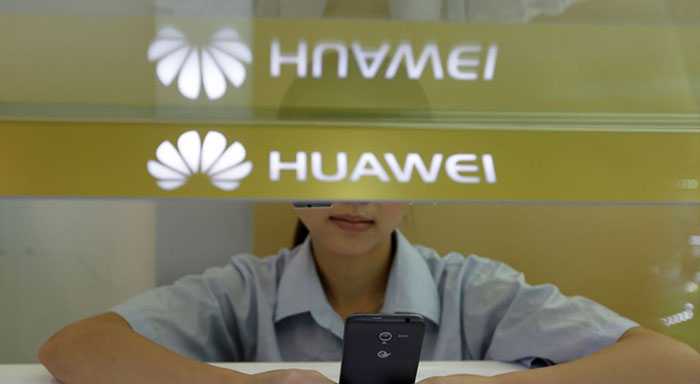Chinese Tech Giant Huawei Faces Growing Backlash
19 January, 2019

Chinese tech giant Huawei is facing a growing backlash overseas and increased scrutiny of the company is putting its efforts to dominate emerging fifth-generation network markets increasingly at risk.
Over the past few weeks, Huawei has faced a landslide of allegations, all of which it has denied. The company’s chief financial officer, Meng Wanzhou, has been released on bail in Canada and is awaiting possible extradition to the United States to face charges of alleged Iran sanction violations.
An employee in Poland has been accused of spying. Britain's Oxford University has placed a ban on donations and sponsorships from the company. The Wall Street Journal reported that U.S. prosecutors are investigating allegations that Huawei stole trade secrets from T-Mobile and other American businesses.
A growing number of countries have voiced concern about the company and have decided or are considering whether they will ban Huawei from next generation or 5G networks.
On Wednesday, a bipartisan group of lawmakers introduced a bill that would ban the sale of U.S. chips or other technologies to Huawei or other companies that violate U.S. sanctions and export control laws. China's Foreign Ministry called the legislation "hysteria," arguing that the bill was just another attempt to suppress and block out Chinese high-tech companies.
The criticism and suspicion, however, is likely to only get worse, analysts said. Fifth generation technology will dramatically increase interconnectivity and is about more than just downloading films faster on your smartphone. The technology has both commercial and military applications.
It’s about "enabling more devices to be connected and lower latency and those two things enable autonomous driving and other Internet of things applications, including industrial applications such as fully automated factories," said Jeroen Groenewegen an analyst at the research firm China Policy in Beijing. "So that means, of course, that there is also a much larger security risk."
He adds that while it still remains to be seen if 5G can live up to its high-expectations, the connectivity and access to data it promises to provide is poised to have a revolutionary impact.
A sales assistant looks at her mobile phone as she waits for customers behind a counter at a Huawei booth in Wuhan, Hubei province, China in this undated photo. /Reuters
And more than any technological networking advance previously, China has positioned itself to be a leader in 5G. And Huawei has been at the forefront of that effort, backed by government funding. Just how much support it has received is unclear.
Questions remain about the company's ownership. Huawei is a privately owned company; one that critics argue is complex and opaque, allowing the company to hide government connections. The company has repeatedly brushed off such concerns and recently offered to allow journalists to review the names of its shareholder list.
But more than longstanding concerns about the company and its origins or the invisible hand of support it receives from the government, moves by China's leader Xi Jinping to exert the Communist Party's control over all enterprises, including high-tech firms, has heightened concerns about Chinese companies, state-owned or private.
And further cemented the view that there is really no such thing as a private company in China. "If Huawei dominates the world's 5G markets, that means, the global 5G markets will be controlled by the Chinese government," said Lin Tsung-nan a professor of engineering at National Taiwan University. "The security risks that that would bring with it are unimaginable."
The growing tussle with Huawei is taking place too against a broader backdrop of shifting views toward the world's second largest economy and that is impacting perceptions of China's technological developments and companies as well. Hopes that China would become a more liberal state or responsible stakeholder are increasingly being replaced by a view of the country as a strategic adversary.
"As the competition between the U.S. and China heats up and takes on not just simply economic, but really strategic implications, there is a tendency to look at all of this stuff as potentially harmful," said Richard Bitzinger, a senior fellow at S. Rajaratnam School of International Studies under Nanyang Technological University in Singapore.
In a rare meeting with foreign journalists earlier this week, the company's billionaire founder Ren Zhengfei tried to set aside some of those fears. He said that Huawei would never harm the interests of its customers and denied suspicions that the company's hardware could be used to spy on Americans. "When it comes to cybersecurity and privacy protection, we are committed to siding with our customers," Ren said. "We will never harm any nation or any individual."
Critics, however, argue that given the communist party's dominance over all aspects of society, Huawei has little choice but to comply. And while the company has sought to distance itself from the government, China's arrest of Canadian citizens in an apparent response to the detention of Huawei CFO Meng Wangzhou is sending a different message.
Following Meng's arrest, China detained two Canadian citizens and earlier this week retried a Canadian man who had previously been found guilty of drug smuggling and sentenced him to death.
Beijing denies there is a connection between Meng's arrest and the cases, but many see it as retribution. For some, such actions only further confirm the view that Huawei is an extension of the Chinese government or at the very least obliged -- now perhaps even more -- to do its bidding.
In an editorial earlier this month, China's ambassador to Canada Lu Shaye called such actions self-defense. On Thursday, at a news conference, he warned that Canada would face repercussions if it joined other countries in banning Huawei equipment from its 5G network.
